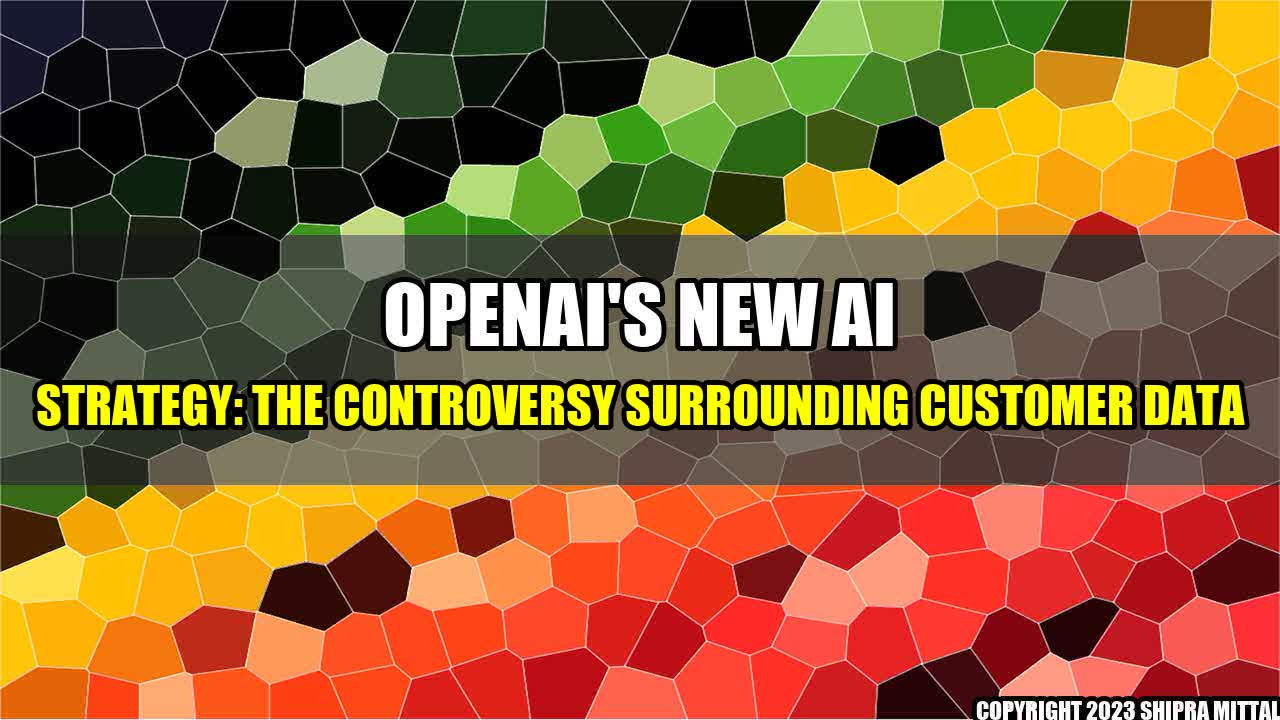
Sam Altman, the CEO of OpenAI, announced last week that the company will no longer train their chatbot, ChatGPT, on customer data. Altman stated that the decision was made due to concerns over privacy and the potential misuse of customer data.
Susan, a loyal customer of Company X, was surprised when she received an unexpected message from the company's chatbot. The message was personal and addressed Susan by name. It offered a discount on a product that Susan had been considering purchasing for some time.
Initially, Susan was impressed by the personalized touch. However, as time went on, Susan began to wonder how much the chatbot knew about her. Was it reading her messages? Was it analyzing her browsing history? Susan began to feel uneasy about the situation and eventually chose to stop doing business with Company X.
OpenAI's decision to halt the training of ChatGPT on customer data has sparked a larger conversation about the ethical use of customer data in AI development. Many companies use customer data to train their AI models, citing the need for personalization and improved customer experience.
However, there are concerns about the potential misuse of this data. Customers may not be aware of the extent to which their data is being used or how it is being utilized. This lack of transparency can lead to distrust and ultimately result in lost business.
OpenAI's decision to prioritize privacy and ethical AI development is a step in the right direction. Other companies, such as Google and Facebook, have faced criticism over their handling of customer data and are now making changes to improve transparency and privacy.
OpenAI's decision to stop training ChatGPT on customer data has sparked a larger conversation about the ethical use of customer data in AI development. There is concern over the potential misuse of customer data and lack of transparency from companies utilizing this data. However, the move toward ethical development and privacy prioritization is a step in the right direction.
Akash Mittal Tech Article
Share on Twitter Share on LinkedIn